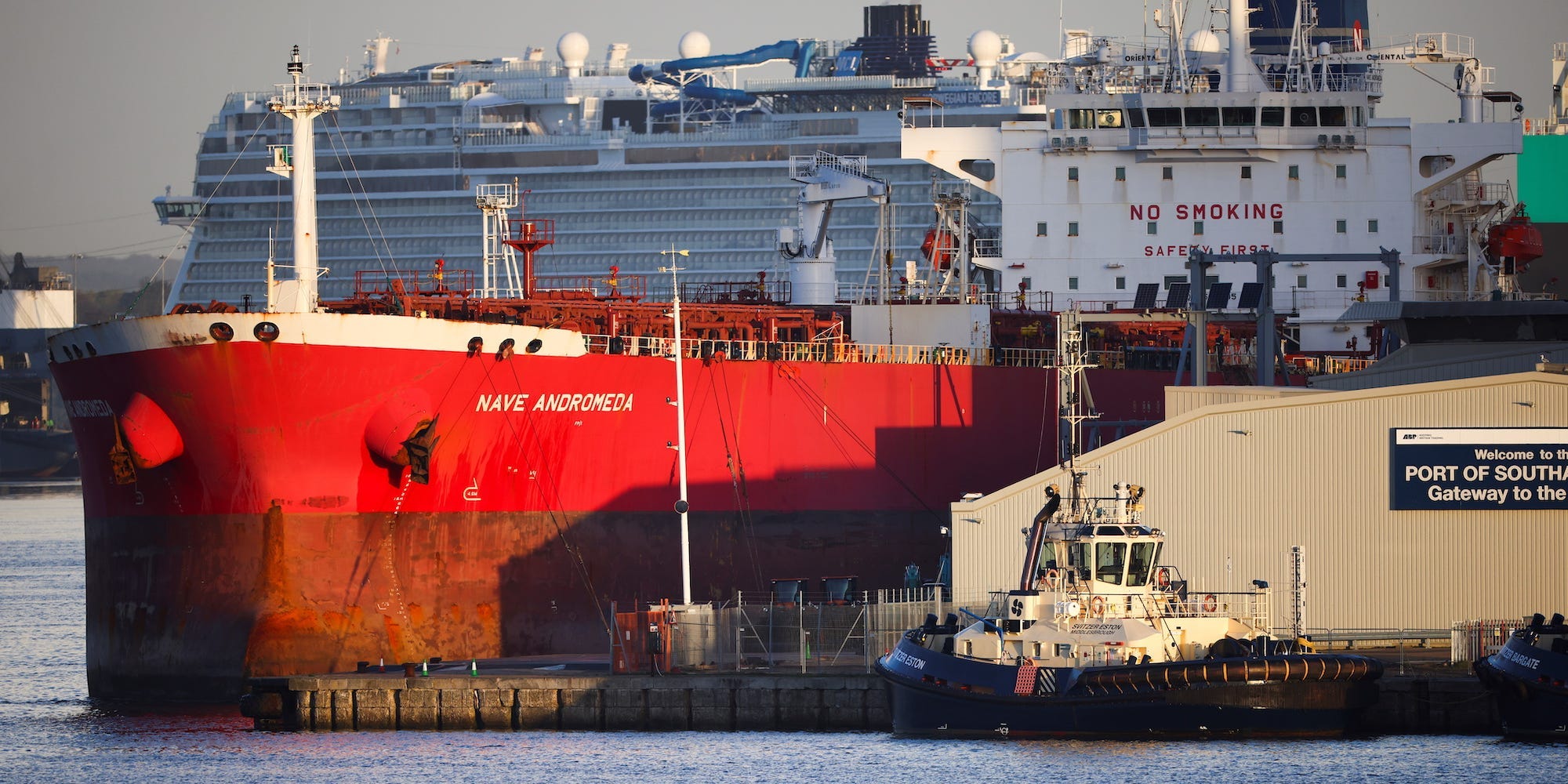
Henry Nicholls/Reuters
- On Sunday, British military operators from the secretive SBS swept aboard a hijacked ship in the English Channel, captured the suspected hijackers, and freed the crew — all in seven minutes.
- The efficiency and effectiveness the operation belies the complexities of maritime counterterrorism and the decades that the SBS has spent honing its craft.
- Visit Business Insider’s homepage for more stories.
On Sunday night, British frogmen from the secretive Special Boat Service (SBS) stormed a tanker following a suspected hijacking by stowaways.
In just seven minutes, the SBS operators swept the gigantic ship, captured the suspected hijackers, and freed the crew. But the British commandos’ efficiency and effectiveness belies the enormous complexities of maritime counterterrorism operations.
Experts in retaking ships
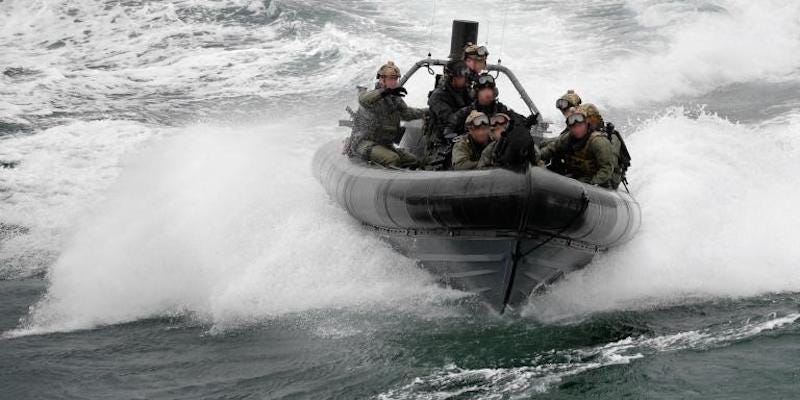
British Ministry of Defense
This is the second such operation by SBS commandos in recent years. In December 2018, stowaways threatened the crew of a cargo ship in the Thames estuary, triggering a response by the SBS, who raided the ship and captured the men responsible.
Maritime counterterrorism is probably one of the toughest skill sets to learn. To begin with, it demands mastery of Close Quarters Battle (CQB), which takes years and thousands upon thousands of rounds to acquire.
As in all special-operations mission sets, top physical fitness is of the essence in maritime counterterrorism, particularly upper-body strength and endurance, as operators have to scale small ladders dangling treacherously between two moving vessels.
Add the unforgiving sea to the equation and you have a tough nut to crack.
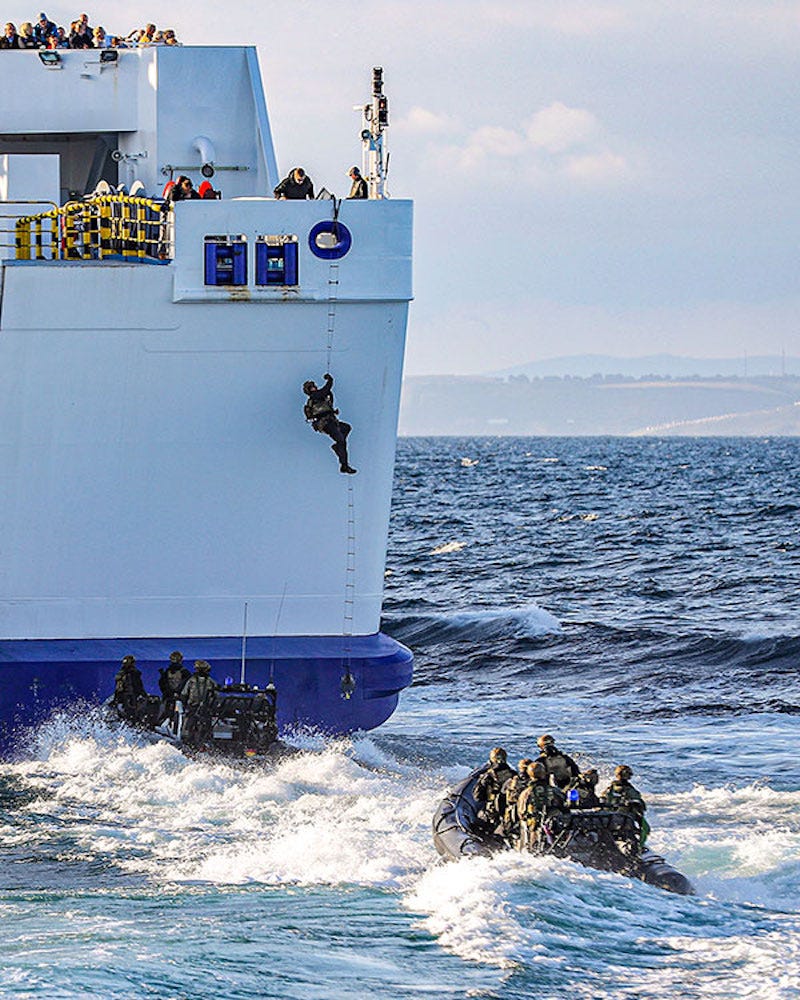
British Ministry of Defense
In an operation like the one on Nave Andromeda, the SBS would use multiple insertion methods to get on the ship. The aim is to divide the terrorists' or criminals' attention and disorient them by storming different parts of the vessel.
Usually, fast-moving boats would assault the target from both sides, and the operators in them would climb aboard the ship on ladders. At the same time, operators would fast-rope from hovering helicopters.
Once on board, the operators would simultaneously sweep the vessel from all angles (top, bottom, left, and right) to reach the hostages and neutralize the threat to them as soon as possible.
In addition, snipers would provide overwatch support and intelligence from helicopters flying above the target.
Pioneers in maritime counterterrorism
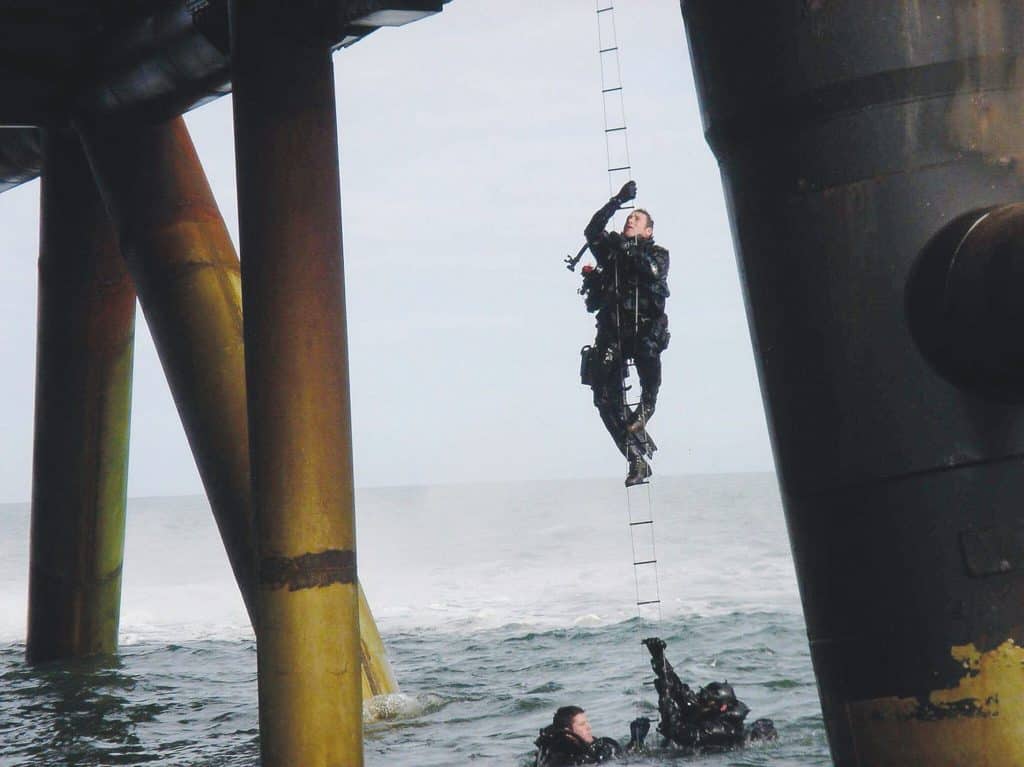
Jason Fox/Instagram
The SBS is the first special-operations unit in the world to adopt a maritime counterterrorism role. In May 1972, the Queen Elizabeth 2 cruise ship was sailing in the Atlantic Ocean when someone called the ship's company and threatened to blow it up unless a ransom was paid.
In response to the threat, four commandos, including two SBS operators, parachuted into the ocean and boarded the ship.
In the end, the call was a hoax, but the incident showcased the need for a dedicated maritime counterterrorism unit that could respond to future contingencies. The hostage crisis at the 1972 Munich Olympics underscored the importance of the counterterrorism mission.
As a result, the SBS began to grow, and the unit's counterterrorism mandate expanded to include anything maritime-related, such as cruise ships, channel ferries, or oil rigs. The SBS works closely with oil companies, often leasing active or decommissioned oil rigs so SBS troops can hone their skills.
The SBS' maritime counterterrorism skills are so good that when the North Sea oil industry began to swell in the 1970s and 1980s, many operators were lured away by oil companies' luxurious paychecks for security work, which caused a manning crisis in the elite unit at the time.
But the SBS has proven it can do more than maritime counterterrorism.
By strength and guile
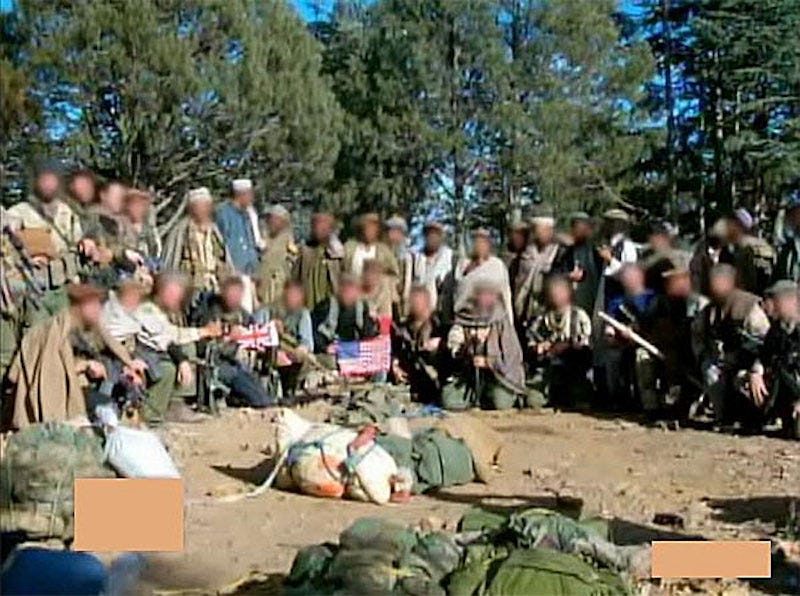
CBS 60 Minutes/Defense Department
Comprised of four assault squadrons (C, M, X, Z), the SBS specializes in direct action, special reconnaissance, counterterrorism, and hostage rescue. At any given time, a squadron is on standby to respond immediately to a terrorist attack or hostage situation in a maritime environment anywhere in the world.
Like the US Navy SEALs, the last two decades of war in the Middle East have somewhat diverted the SBS from its maritime focus. But back-to-back deployments to Iraq and Afghanistan have shown the unit's land-warfare capabilities.
In the initial days of the campaign against Al Qaeda and the Taliban in Afghanistan, SBS operators fought alongside US Delta Force commandos in the Battle of Tora Bora, where Osama bin Laden was almost killed or captured in November 2001.
They also helped quell the Taliban prisoner riot that killed CIA operative Mike Spann, the first American to die in the Global War on Terror. During that operation, a US Navy SEAL from SEAL Team 6, who was serving on an exchange with the SBS, received the Navy Cross, which is second only to the Medal of Honor.
Until recently, only Royal Marine Commandos could become SBS operators. Now all British service members, regardless of branch, can try out for the unit. They have to undergo a joint selection process with SAS candidates and complete an additional months-long phase of maritime training at the end in order to qualify as SBS operators.
Stavros Atlamazoglou is a defense journalist specializing in special operations, a Hellenic Army veteran (National Service with the 575th Marine Battalion & Army HQ), and a Johns Hopkins University graduate.
Dit artikel is oorspronkelijk verschenen op z24.nl
